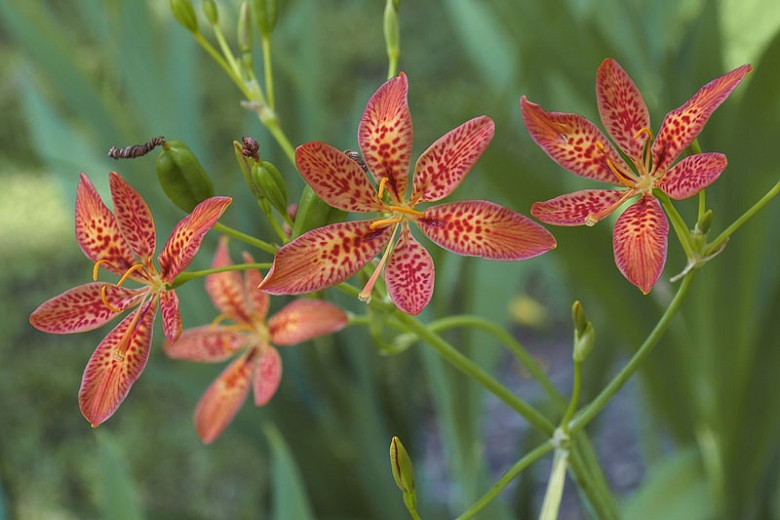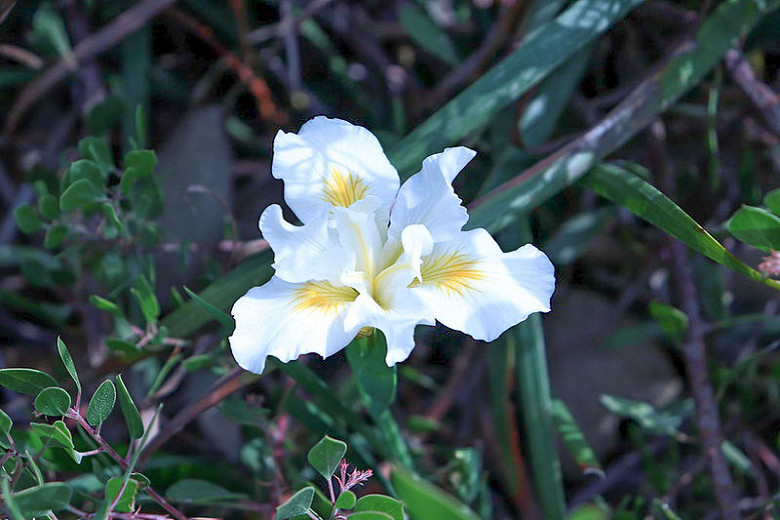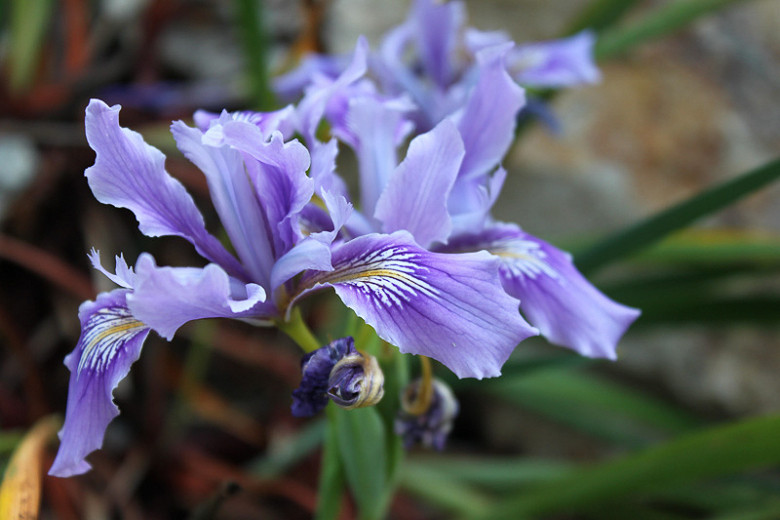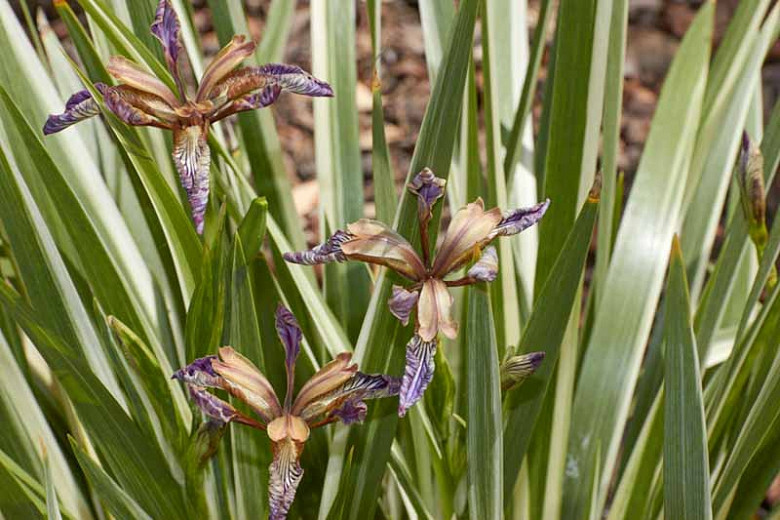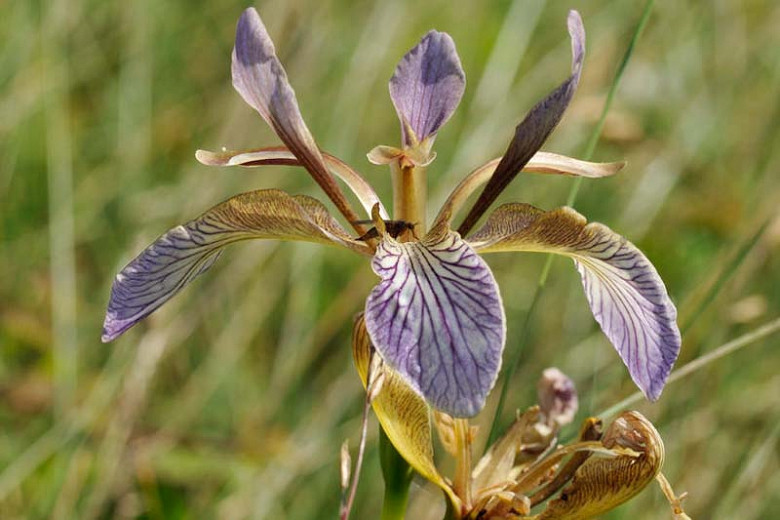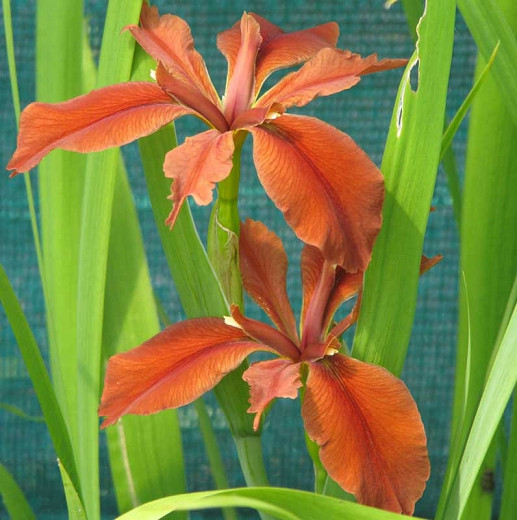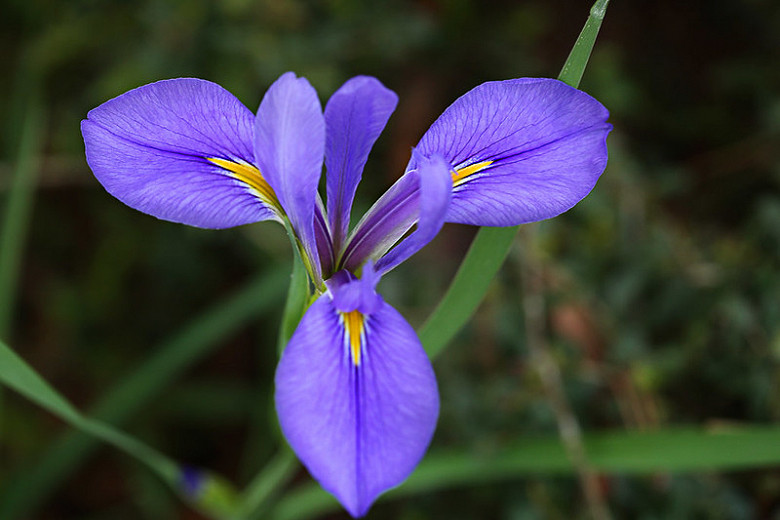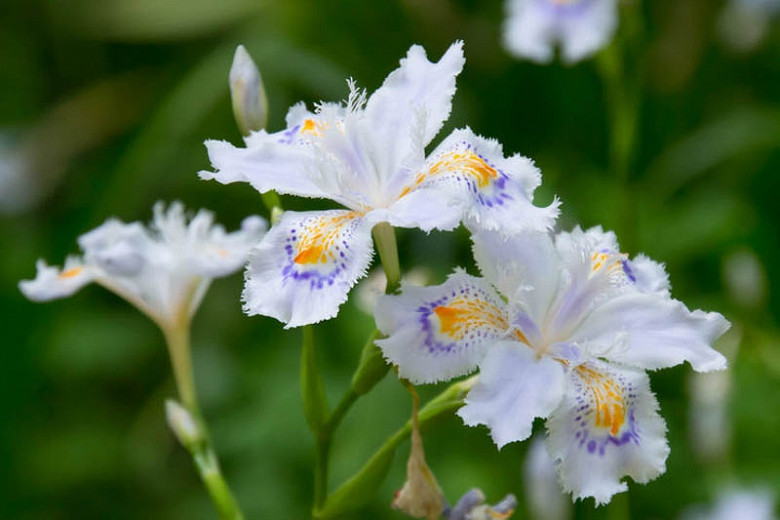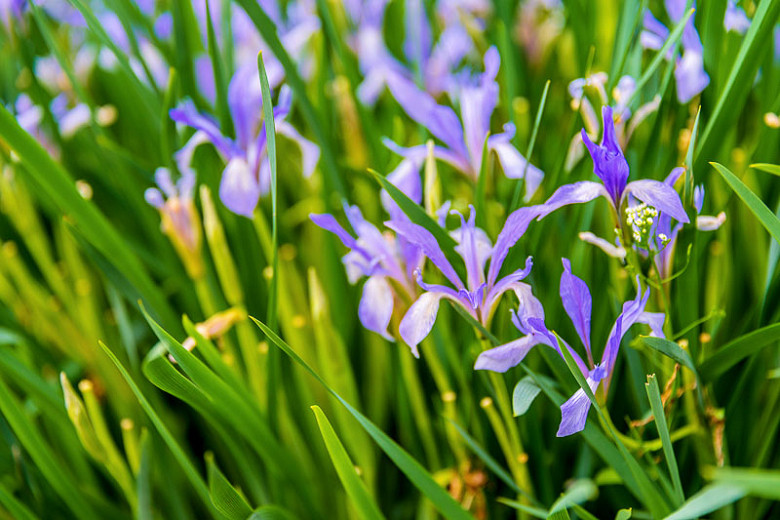Iris domestica (Blackberry Lily)
Iris domestica (Blackberry Lily) is an erect, rhizomatous perennial boasting showy sprays of 3-12 reddish-orange flowers, 2 in. across (5 cm), with 6 flaring petals of equal size that are peppered with deep red spots. Blooming in mid to late summer, each flower usually lasts only a day, but the plant produces a succession of blooms over a period of several weeks. They are borne on slender, naked stems and rise above a fan of flat, sword-shaped, medium green leaves, 10 in. long (25 cm), which arise from underground rhizomes and remain attractive through the growing season. The blossoms are followed by persistent pear-shaped seed pods splitting to reveal several conspicuous, shiny black seeds arranged in clusters resembling large blackberries, hence the common name of Blackberry Lily. The seeds remain on the stalks for several months and offer good winter interest. Formerly known as Belamcanda chinensis, Blackberry Lily is suitable for perennial borders, containers, and for naturalizing in informal areas.
- Grows up to 2-3 ft. tall (60-90 cm) and 10-24 in. wide (25-60 cm). Will self-seed if happy.
- Performs best in full sun to part shade in humus-rich, moist, well-drained soils. Do not let the soil dry out in summer.
- A welcomed addition to beds and borders, city gardens, coastal gardens, and cottage gardens where it will provide excellent color contrast. Great for containers too.
- Virtually pest and disease free.
- All parts may cause discomfort if ingested. Wear gloves and other protective equipment when handling.
- Toxic to dogs, toxic to cats, toxic to horses.
- Deadhead to prolong blooming and prevent self-seeding.
- Propagate by seed in a cold frame in spring. Divide in spring.
- Native from the Himalayas to Russian Far East.
Requirements
| Hardiness | 5 – 10 |
|---|---|
| Heat Zones | 5 – 9 |
| Climate Zones | 1, 1A, 1B, 2, 2A, 2B, 3, 3A, 3B, 4, 5, 6, 7, 8, 9, 10, 11, 12, 13, 14, 15, 16, 17, 18, 19, 20, 21, 22, 23, 24 |
| Plant Type | Perennials |
| Plant Family | Iris – Other |
| Exposure | Full Sun, Partial Sun |
| Season of Interest | Summer (Mid,Late) |
| Height | 2' – 3' (60cm – 90cm) |
| Spread | 10" – 2' (25cm – 60cm) |
| Spacing | 18″ – 24″ (45cm – 60cm) |
| Water Needs | Average |
| Maintenance | Low |
| Soil Type | Clay, Loam |
| Soil pH | Acid, Alkaline, Neutral |
| Soil Drainage | Moist but Well-Drained |
| Characteristics | Showy, Fruit & Berries |
| Garden Uses | Beds and Borders, Wall-Side Borders |
| Garden Styles | City and Courtyard, Coastal Garden, Informal and Cottage |
